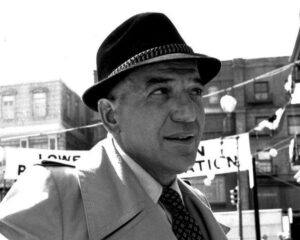The Golden Era of Classic British TV Detectives: A 1970s Retrospective
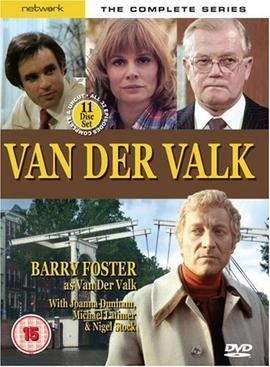
This is a favourite as well. Another offbeat idea. Totally British accents, but set in the Netherlands. Strange, but it works
The 1970s was a golden era of classic British TV detectives, especially in the realm of cop dramas. This decade saw the rise of iconic TV sleuths who captured the imagination of viewers with their wit, charm, and occasionally unorthodox investigative methods. As the cultural landscape of Britain shifted, so did its portrayal of crime and justice, creating unforgettable characters that became household names. Let’s take a journey back in time and revisit some of the classic detectives who ruled the small screen in the 1970s.
A Changing Landscape in British TV
The 1970s was a period of social and political change in Britain. The economic struggles of the time, along with changing attitudes toward authority and class, were often reflected in television dramas. The gritty realism of many police procedurals began to replace the more romanticised detective stories of earlier decades, giving viewers a fresh, often darker, perspective on crime and justice.
Television had become an integral part of British life, and detective dramas allowed audiences to escape into a world of mystery and intrigue while also confronting the social issues of the day. These shows were often more than just ‘whodunits’; they explored themes of morality, justice, and the complexities of human nature.
The Iconic Characters of the Golden Era of Classic British TV Detectives
- Inspector Regan and The Sweeney
One of the most significant British TV detective shows of the 1970s was The Sweeney, which aired from 1975 to 1978. The Sweeney was a groundbreaking series that focused on the Flying Squad, a specialised branch of the Metropolitan Police tasked with tackling armed robbery and violent crime. The show was notable for its hard-hitting realism, often portraying the gritty, sometimes brutal side of police work.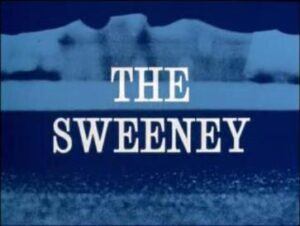
The view under a car, yet everyone who knows the series knows the thumping music that followed. At the heart of the show was Detective Inspector Jack Regan, played by John Thaw, and his partner Detective Sergeant George Carter, portrayed by Dennis Waterman. Regan was tough, no-nonsense, and wasn’t afraid to bend the rules to get the job done. The show’s fast-paced action, memorable one-liners, and Regan’s iconic catchphrase, “Get your trousers on, you’re nicked!”, cemented The Sweeney as a classic of British television.
What set The Sweeney apart from other detective dramas of the time was its focus on the moral ambiguity of its characters. Regan, while undeniably effective, often blurred the lines between right and wrong, reflecting the changing attitudes toward authority in 1970s Britain.
- Detective Chief Inspector Tom Barnaby and Midsomer Murders
Though Midsomer Murders first aired in the late 1990s, its roots trace back to the earlier traditions of British detective shows. One cannot discuss British TV detectives without at least touching on the more classic, Agatha Christie-style whodunits, which were still influential during the 1970s.
A true whodunnit series of the most English kind. One small rural area which had a death toll to rival a Star Wars trilogy While Detective Chief Inspector Tom Barnaby wouldn’t grace our screens until later, the 1970s set the stage for the kind of rural, cosy mysteries that Midsomer Murders would come to epitomise. The 1970s saw several detective shows set in picturesque villages or involving eccentric characters that would heavily influence later series like Midsomer Murders.
- Shoestring – The Detective as an Outsider
Shoestring was a unique detective drama that aired between 1979 and 1980. The show followed Eddie Shoestring, a former computer expert turned private investigator, who also hosted a radio show. Trevor Eve’s portrayal of Eddie gave British audiences a new kind of TV detective, one who wasn’t a police officer but an outsider, working independently of the system.
I remember this so well and so fondly. Trevor Eve, title role, only wanted to do a couple of seasons and sadly that was that. Shoestring offered a more personal, introspective take on detective work. Eddie’s cases often involved ordinary people, and his empathetic, sometimes unconventional approach to solving mysteries made him a relatable, if unconventional, hero. The show had a charm that set it apart from the grittier police procedurals of the time, yet it still managed to address the issues of 1970s Britain in its own way.
- Van der Valk – A Dutchman in Britain’s Living Rooms
Although technically a Dutch detective, Van der Valk became a familiar face on British television in the 1970s. Based on the novels by Nicolas Freeling, Van der Valk followed the cases of the titular character, Piet Van der Valk, an Amsterdam-based detective.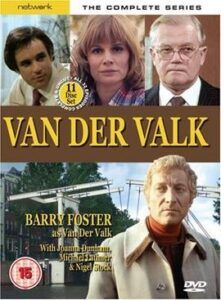
This is a favourite as well. Another offbeat idea. Totally British accents, but set in the Netherlands. Strange, but it works. Van der Valk was a unique addition to British TV, blending continental flair with British crime drama sensibilities. The show’s distinct style, including its iconic theme music, helped it stand out from other detective series of the time. Barry Foster’s portrayal of Van der Valk was charming, and his character’s approach to solving crimes was often more laid-back and philosophical than his British counterparts, making for an intriguing contrast.
- Public Eye and the Private Detective
Another significant 1970s series was Public Eye, which ran from the mid-1960s into the 1970s, becoming a quintessential detective drama of the decade. Frank Marker, played by Alfred Burke, was the show’s private investigator protagonist, operating on the margins of society, much like Eddie Shoestring.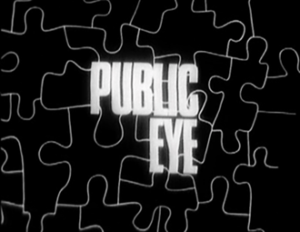
This was too long ago even for me. It was a pioneer of the offbeat PI style. Less handsome rogue more street and war worn. What set Public Eye apart was its focus on Marker’s often mundane, low-key cases, which gave the show a distinct realism. Unlike the glamorous, high-stakes investigations seen in some other detective series, Public Eye showed the less glamorous side of detective work. Marker wasn’t a hero in the traditional sense; he was flawed, often struggling financially, and at times morally conflicted. Yet, this made him all the more human and relatable to audiences of the time.
The Enduring Legacy
The British TV detectives of the 1970s left a lasting legacy that still resonates today. While the gritty realism of shows like The Sweeney helped shape the police procedurals we see now, the more introspective, character-driven dramas like Public Eye and Shoestring paved the way for more nuanced, emotionally complex storytelling in crime dramas.
In many ways, the 1970s represented a shift in how British TV portrayed detectives. The detectives of this era weren’t infallible, all-knowing heroes; they were flawed, often troubled individuals who had to navigate a world that was just as complex and morally ambiguous as the crimes they investigated. This more human approach to storytelling made these characters more relatable to audiences, and it’s one of the reasons why many of these shows are still fondly remembered today.
The 1970s was a transformative decade for British television, and its detective dramas were at the forefront of this change. Shows like The Sweeney, Shoestring, and Public Eye offered audiences a more grounded, often gritty take on crime and justice, while characters like Inspector Regan and Frank Marker became iconic figures in British popular culture.
This golden era of classic British TV detectives were not only entertaining but they also reflected the social and political concerns of the time, making them an essential part of the British TV landscape. Today, they continue to inspire new generations of TV detectives, proving that the allure of a good mystery and the charm of a classic detective never really goes out of style. This is just the first of many articles to follow about characters like these. I want to expand this site into a celebration of every great fictional detective.
Cheers
John Tinehem
Have a look at the first of many US detective shows we cover, click here.
